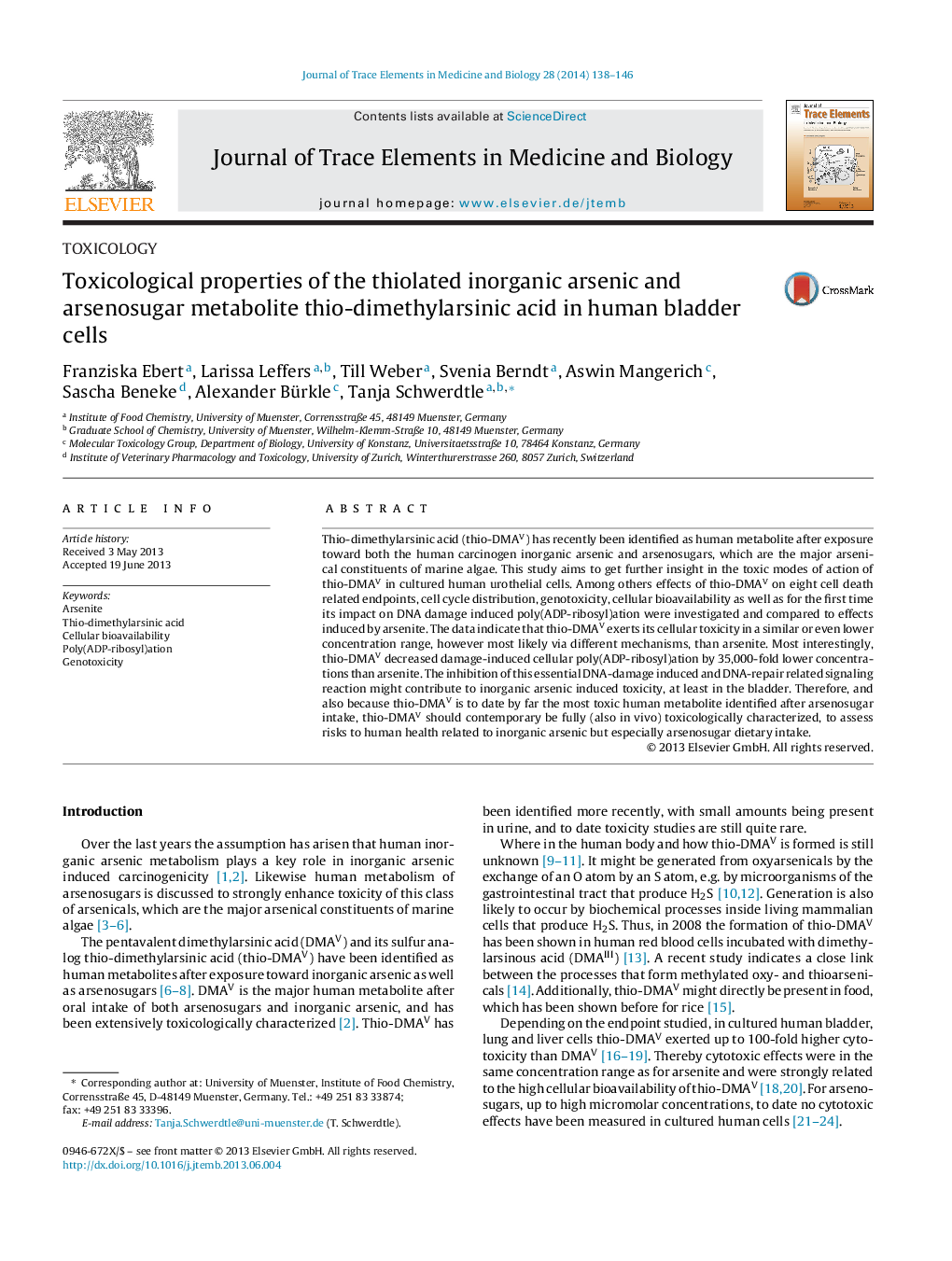| Article ID | Journal | Published Year | Pages | File Type |
|---|---|---|---|---|
| 1226508 | Journal of Trace Elements in Medicine and Biology | 2014 | 9 Pages |
Thio-dimethylarsinic acid (thio-DMAV) has recently been identified as human metabolite after exposure toward both the human carcinogen inorganic arsenic and arsenosugars, which are the major arsenical constituents of marine algae. This study aims to get further insight in the toxic modes of action of thio-DMAV in cultured human urothelial cells. Among others effects of thio-DMAV on eight cell death related endpoints, cell cycle distribution, genotoxicity, cellular bioavailability as well as for the first time its impact on DNA damage induced poly(ADP-ribosyl)ation were investigated and compared to effects induced by arsenite. The data indicate that thio-DMAV exerts its cellular toxicity in a similar or even lower concentration range, however most likely via different mechanisms, than arsenite. Most interestingly, thio-DMAV decreased damage-induced cellular poly(ADP-ribosyl)ation by 35,000-fold lower concentrations than arsenite. The inhibition of this essential DNA-damage induced and DNA-repair related signaling reaction might contribute to inorganic arsenic induced toxicity, at least in the bladder. Therefore, and also because thio-DMAV is to date by far the most toxic human metabolite identified after arsenosugar intake, thio-DMAV should contemporary be fully (also in vivo) toxicologically characterized, to assess risks to human health related to inorganic arsenic but especially arsenosugar dietary intake.
